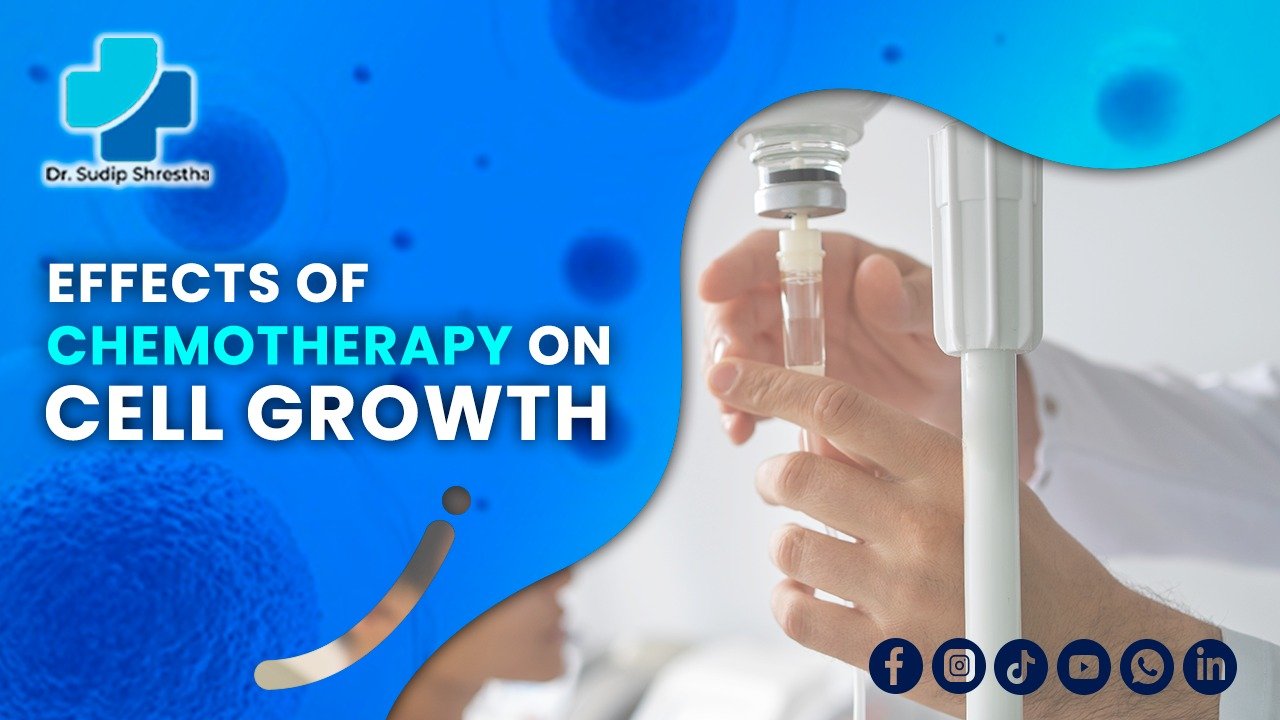Chemotherapy is a medical treatment that uses drugs to kill or inhibit the growth of rapidly dividing cells, including cancer cells. While the primary goal of chemotherapy is to target and destroy cancer cells, it can also affect normal cells in the body. The effects of chemotherapy on cells growth and development can vary depending on the specific drugs used, the dosage, and the individual’s overall health. Here are some of the key effects:
- Inhibition of Cancer Cell Growth: Chemotherapy drugs are designed to target and kill rapidly dividing cancer cells. They interfere with the cell cycle, preventing cancer cells from dividing and growing. Different drugs work in various ways, such as damaging DNA or disrupting essential cellular processes, to stop cancer cell proliferation.
- Impact on Normal Cells: Unfortunately, chemotherapy drugs are not selective, and they can also affect normal, healthy cells that divide quickly. This can lead to a range of side effects, including hair loss, gastrointestinal issues, and bone marrow suppression.
- Bone Marrow Suppression: Chemotherapy can significantly affect the bone marrow, where blood cells are produced. This can lead to a decrease in the number of red blood cells (anemia), white blood cells (neutropenia), and platelets (thrombocytopenia). This can weaken the immune system, making individuals more susceptible to infections and causing fatigue and bleeding problems.
- Gastrointestinal Effects: The rapidly dividing cells in the lining of the gastrointestinal tract can be impacted by chemotherapy, leading to side effects such as nausea, vomiting, diarrhea, and mouth sores.
- Hair Loss: Hair follicles are among the fastest-growing cells in the body, and chemotherapy often affects them. This can result in temporary hair loss, including hair on the scalp, eyebrows, and eyelashes.
- Impact on Reproductive Cells: Chemotherapy can damage germ cells in the testes and ovaries, potentially causing infertility or temporary sterility. It is important for individuals of reproductive age to discuss fertility preservation options with their healthcare team before starting chemotherapy.
- Delayed Healing: Chemotherapy can slow down the healing process of wounds or injuries due to its effects on cell growth and division. This can increase the risk of complications.
- Long-Term Effects: Some chemotherapy drugs can have long-term effects on cells, potentially leading to secondary cancers or other health issues years after treatment.
It’s important to note that not all chemotherapy drugs have the same effects, and the specific impact on cell growth and development can vary widely. Healthcare professionals carefully select chemotherapy regimens based on the type and stage of cancer, as well as the patient’s overall health, to balance the therapeutic benefits with the potential side effects. Additionally, research continues to advance the development of more targeted and less toxic chemotherapy drugs to minimize the impact on normal cells while effectively targeting cancer cells.

Dr.Sudip Shrestha
Founder & Executive Chairman
Sr. Consultant Medical Oncologist
Nepal Cancer Hospital & Research Center
Designation: Founder and Chairman, Senior Consultant Medical Oncologist
Qualification: MBBS, MD, Post Graduate Training in Medical Oncology
Department: Medical Oncology
Special interest: Chemotherapy, Immunotherapy, Targeted Therapy, Precision Medicine




2 thoughts on “What are the effects of chemotherapy on cell growth and development?”